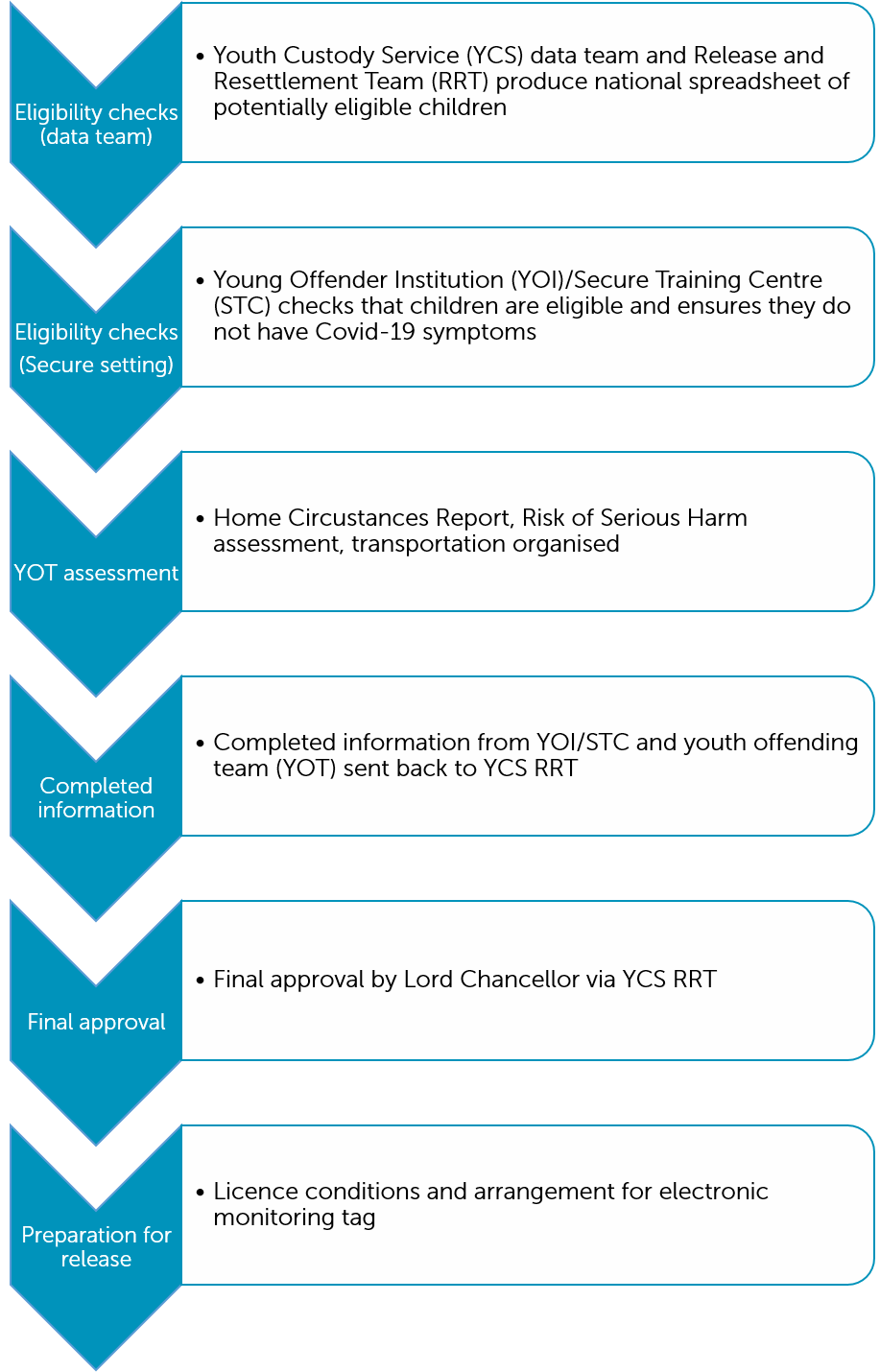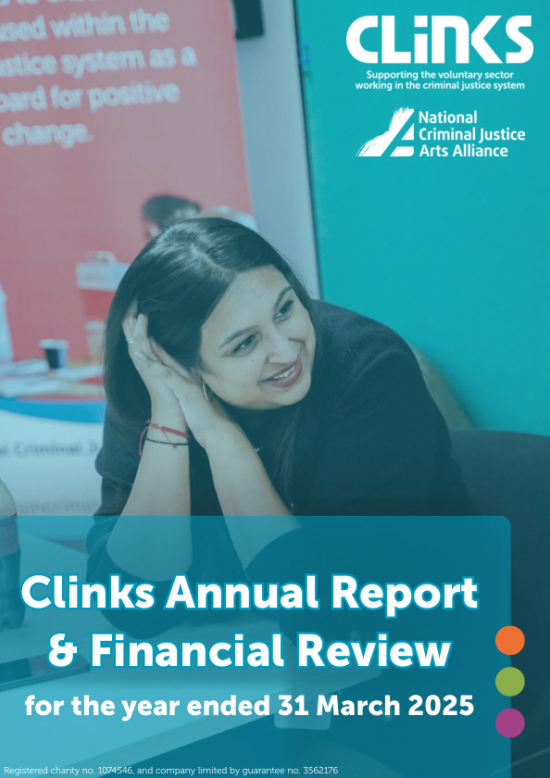Last week we provided details about the government’s coronavirus End of Custody Temporary Release (ECTR) scheme. This blog post gives details from the parallel official guidance on ECTR in the youth estate.
Clinks is grateful to HMPPS for providing us with a direct line of communication to ensure that we can give all voluntary organisations working in the criminal justice system the latest and most accurate information about how our prison and probation services are adapting to Covid-19 and the implications for service delivery.
Overview
In the same fashion as the adult ECTR scheme, children and young people approaching their automatic release date may be considered for End of Custody Temporary Release on licence. The aim is to relieve pressures in relation to Covid-19, prevent transmission and protect children and young people, Youth Custody Service (YCS) staff and the NHS.
The guidance, issued jointly by Her Majesty’s Prison and Probation Service (HMPPS), the NHS, the Youth Custody Service and the Youth Justice Board, makes it clear that currently ECTR can be granted for children and young people in Young Offender Institutions (YOIs) or Secure Training Centres (STCs). The legislation does not yet apply to children in Secure Children’s Homes, although the government intends to make this group eligible too.
The guidance notes that secure settings and youth offending teams (YOTs) are experienced at supporting children and young people to prepare for and leave custody and that it is expected that best practice guidance and national standards will all remain in place. ECTR simply allows a child or young person to be released earlier than planned for, with additional safeguarding consideration given to provide the support they will need to be managed effectively in the community under Covid-19 restrictions affecting everyone in the United Kingdom.
Who is eligible?
The formal eligibility criteria are:
ECTR eligible children and young people must:
- be a child or young person on a standard determinate sentence (including s.91 sentences) released under section 244 of the Criminal Justice Act 2003
or
- be a fine defaulter or contemnor released under section 258 of the Criminal Justice Act 2003
or
- be serving a detention and training order (DTO) under section 100 of the Powers of Criminal Courts (Sentencing) Act 2000
and
- be assessed as having a ‘Low’ or ‘Medium’ Risk of Serious Harm (RoSH) score
- be within 61 days of their automatic release date
- have already served at least half the custodial term they were sentenced to.
A number of children and young people are also excluded from the scheme:
- Those on remand
- Those subject to recall
- Those whose sentences are subject to initial Parole Board release
- Those assigned restricted status
- Those who are subject to any outstanding charges, or have been referred to the police or the Independent Adjudicator.
Additionally, children and young people who are serving sentences of more than four years for specific offences (provided in the full guidance) or who are serving sentences of any length for any serious violent, sexual, terrorism or drug offence (again specified in the guidance) or who would be supervised on Multi-agency public protection arrangements (MAPPA) on release are all excluded from the ECTR. Also excluded are those serving a sentence for a Covid-19-related offence or registered sex offenders. The full guidance also specifies another 10 groups of individuals who will be excluded from the scheme.
The release process
The guidance specifies a six-step release process summarised in the diagram below:

Licence conditions
There are a total of 14 licence conditions for children released under ECTR. In addition to the usual conditions, children released must: comply with the government’s Covid-19 guidelines; keep their ECTR licence with them at all times; observe a 7pm to 7am curfew; not drink, take drugs or gamble; nor use social media.
Supervision
Unlike adults released under ECTR (who are not subject to probation supervision), children will be subject to the “normal expected level of statutory YOT supervision”, which has been modified, in light of coronavirus. However, children temporarily released on ECTR licence will remain the responsibility of the secure setting (YCS RTT) for the administration of the licence, while also supervised by the YOT in the community.
Children who do not have their own mobile phone, will be provided with one on release in order to support remote contact and YOTs must schedule a home/ virtual visit within 24 hours of notification of release “where it is safe and possible to do so.”
When the ECTR licence expires on their original early release or automatic release date they will transfer straight onto a YOT supervision Licence or Notice of Supervision.
Clinks will keep you up-to-date on any changes to these ECTR arrangements.
What's new
Blogs
Anne Fox CEO of Clinks to stand down after a decade of service
Latest on X
The role is for a leader from an organisation focused on racially minoritised people, with expertise in service delivery, policy, advocacy, or related areas in criminal justice. Racial disparities are present at every CJS stage. This role ensures these voices are central in shaping policy to help address and eradicate them. Apply by Mon 18 Nov, 10am. More info: https://www.clinks.org/voluntary-community-sector/vacancies/15566 #CriminalJustice #RR3 #RacialEquity

